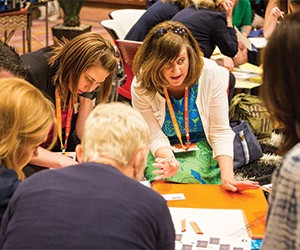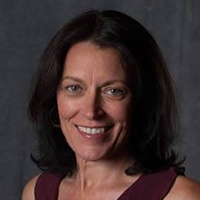From a hackathon, a story slam challenge and an expert panel sourced from the attendee audience to “4-D deep dive” sessions, MPI WEC 2017 lived up to its mission to help attendees “stop planning meetings and start designing experiences” through an array of unique experimental programming.
“We know that our event planners want to experiment with different ways to help people engage but that’s really difficult for them to do when it’s their meeting they are hosting,” said Jessie States, MPI’s manager of professional development, who oversaw the EduLab sessions at MPI WEC. “With the EduLab, we wanted to be able to experiment with the different formats that we know planners want to try and then debrief at the end of the session to understand how it could be used and implemented at their own events, what worked and what challenges they may have when using a different format.”
EduLab sessions included a Space Race, where attendees had the opportunity to design their own learning environment; a Fish Bowl, a way to have an intimate conversation with a large group of people; an Escape Room, which had escape room environments and a conference tabletop version for teambuilding and audience engagement; a Spectrogram Panel, a way to source subject matters from the room and source panel members the day of the event; a Hackathon that examined solutions for a nonprofit devoted to street teens; and a Story Slam, a way to invite partners to come and speak to an audience in a non-sales environment.
Meanwhile, MPI WEC’s 4-D “deep dive” program was another innovative experiential experiment that was very well-received, according to Kristi Casey Sanders, director of the MPI Academy.
“It was an educational long-form experience based on what we know from neuroscience, which is that people can only absorb a couple of things at a time, so it was talking about creating experiences, but the way that is was also delivered was conducive to human learning and memory,” she said. “You rarely get to follow an idea then take deeper dives into it.”
The program began with a concurrent session that introduced why it was important to be thinking about the experiences planners were creating and then the four elements of that design experience. After that session, there were 60- and 75-minute blocks that allowed planners to take a deep dive into each one of the four D’s, which were Deep Learning, Deep Connection, Deep Reflection and Deep Play.




